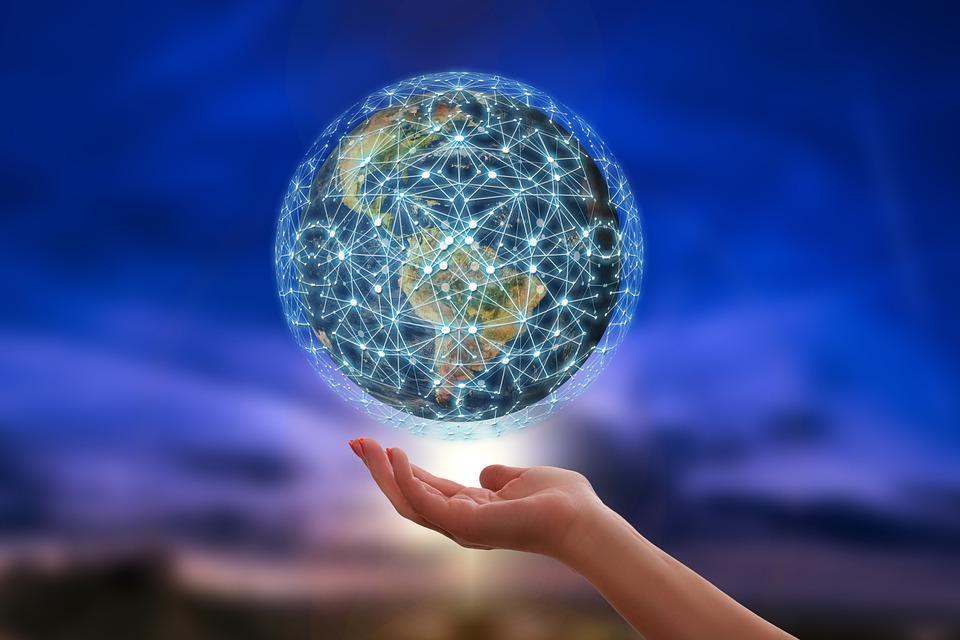Blockchain is more than just a buzzword; it’s a game changer. This innovative technology is shaking up industries you thought you knew inside and out. If you’re curious about how blockchain can transform your world, you’re in the right place. Let’s dive into the details of how blockchain is revolutionizing industries today, making them more efficient, secure, and trustworthy.
Contents
- Understanding Blockchain
- 1. Financial Services: A Trustworthy Exchange
- 2. Healthcare: A Patient-Centric Approach
- 3. Supply Chain Management: Transparency at Its Best
- 4. Real Estate: Simplifying Transactions
- 5. Voting: A More Democratic Process
- 6. Energy: Decentralizing Power
- 7. Entertainment: Fair Compensation for Creators
- Bottom Line
Understanding Blockchain
At its core, blockchain is a decentralized digital ledger that records transactions across numerous computers. This means no single entity controls it; instead, everyone in the network has a copy. This transparency and security are what make blockchain so significant—not just for tech enthusiasts but for anyone interested in the future of business.
Why does this matter to you? Because blockchain technology is set to redefine how we interact with everything from our finances to our health records. It’s time to explore how its impact is felt across various sectors.
1. Financial Services: A Trustworthy Exchange
The financial sector is one of the first to embrace blockchain technology. Traditional banking can often feel like a maze of fees and delays. But with blockchain, transactions become almost instantaneous and considerably cheaper.
- Lower Fees: Say goodbye to hefty transaction charges. Blockchain eliminates intermediaries, allowing you to send money directly.
- Increased Security: Blockchain transactions are encrypted and immutable, making fraud practically impossible.
Imagine wanting to send money to a friend abroad. Instead of waiting for days and paying a fortune in fees, you could do it in seconds for a fraction of the cost. That’s the power of blockchain in financial services.
2. Healthcare: A Patient-Centric Approach
In healthcare, one of the biggest hurdles is managing patient records efficiently. Blockchain offers a patient-centric system that allows you to control your own health data.
- Secure Data Sharing: With blockchain, you can share your medical history with doctors without fear of tampering or breaches.
- Streamlined Processes: From billing to clinical trials, blockchain can streamline operations, reducing costs and improving patient care.
Imagine walking into a hospital, and your entire medical history is right there—accessible, secure, and accurate. That’s not just a dream; it’s a soon-to-be reality.
3. Supply Chain Management: Transparency at Its Best
Ever wonder where your products come from? Blockchain is changing the game in supply chain management by providing end-to-end visibility.
- Traceability: You can track products from origin to shelf, ensuring authenticity and ethical sourcing.
- Reduced Fraud: By recording every transaction, blockchain minimizes the risk of counterfeit goods.
Think about it: You could scan a code on your favorite organic coffee and see exactly where it came from, who handled it, and how it reached you. That level of transparency is a powerful tool for consumers.
4. Real Estate: Simplifying Transactions
Buying a home can be a daunting process filled with paperwork and legal hurdles. Blockchain simplifies real estate transactions by digitizing property records.
- Faster Transactions: By eliminating the need for extensive paperwork, transactions can close in days rather than months.
- Enhanced Security: With smart contracts, agreements are executed automatically when conditions are met, reducing the potential for disputes.
Imagine buying your dream home with a few clicks instead of drowning in a sea of paperwork. Blockchain is making that possible.
5. Voting: A More Democratic Process
Elections can be fraught with issues, from voter fraud to inefficiencies in counting ballots. Blockchain offers a solution that can enhance the integrity of the voting process.
- Secure Voting: Each vote can be recorded as a transaction on the blockchain, making it nearly impossible to alter or tamper with.
- Increased Accessibility: Remote voting becomes feasible, allowing more people to participate in democracy.
Imagine casting your vote from the comfort of your home, knowing it’s securely recorded and counted. That’s not just a dream; it’s the future of voting.
6. Energy: Decentralizing Power
The energy sector is ripe for disruption, and blockchain is leading the way. Imagine a world where you can buy and sell energy directly from your neighbors.
- Peer-to-Peer Transactions: You can trade excess energy from your solar panels directly with others.
- Improved Grid Management: Blockchain can optimize energy distribution, reducing waste and costs.
Picture this: your home generates more energy than you need, and instead of giving it away, you sell it directly to someone in your community. That’s not just innovation; it’s empowerment.
7. Entertainment: Fair Compensation for Creators
Musicians, filmmakers, and artists often struggle to get fair compensation for their work. Blockchain can change that by providing a transparent platform for distribution.
- Direct Sales: Creators can sell their work directly to fans, cutting out middlemen and keeping more profit.
- Transparent Royalties: Every transaction is recorded, ensuring that artists get paid fairly for their contributions.
Imagine streaming your favorite song and knowing the artist receives a fair share of the revenue. That’s the beauty of blockchain in the entertainment industry.
Bottom Line
Blockchain is not just a technological advancement; it’s a revolution that’s reshaping industries in profound ways. From financial services to healthcare, supply chains to entertainment, its impact is undeniable.
So, what does this mean for you? As you navigate your life and choices, keep an eye on how blockchain technology might enhance your experiences. Embrace the future—it’s already here.
FAQ
What is blockchain?
Blockchain is a decentralized digital ledger that records transactions across multiple computers, ensuring transparency and security.
How does blockchain improve security?
By encrypting data and creating immutable records, blockchain drastically reduces the chances of fraud and data breaches.
Can blockchain be used in voting?
Yes, blockchain can enhance the voting process by providing a secure, transparent way to record and count votes.
Is blockchain only for cryptocurrencies?
No, blockchain has applications across various industries, including healthcare, real estate, supply chain, and more.
How can I learn more about blockchain?
You can explore resources like Harvard Business Review or MIT Technology Review for in-depth articles and insights.
Now, are you ready to embrace this revolutionary change? The future is bright with blockchain.








